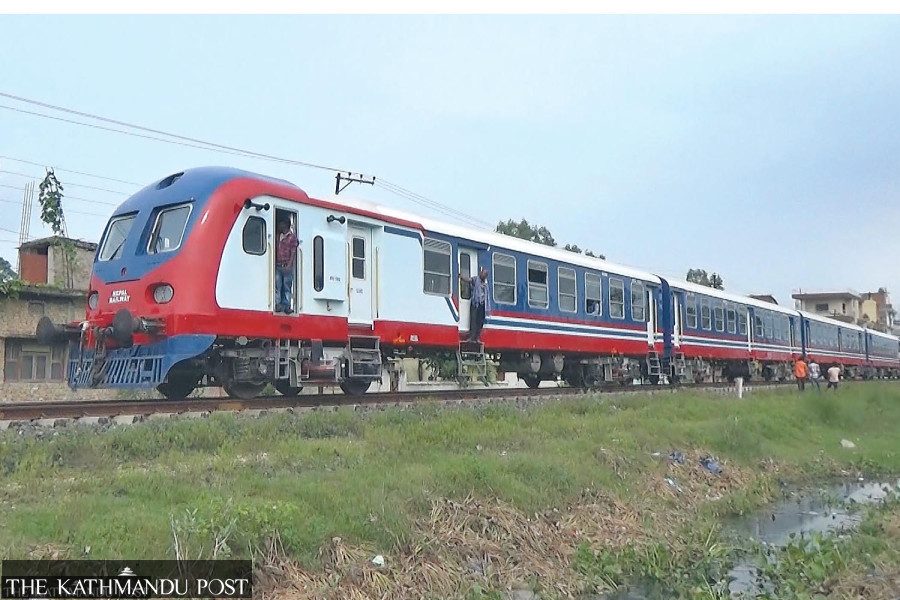Editorial
Train wreck
A cross-border railway with India shows how Nepal tends to waste outside help for its development.
Nepal has again shown how ill-prepared and neglectful it is about running a project built and handed over by a foreign friend. This has been Nepal’s chronic problem mainly after the 1990 political change: Nepali authorities have turned several entities built by or with the support of foreign donors into non-functioning bodies. The latest victim of neglect is the Jayanagar-Kurtha cross-border railway. India’s Konkan Railways Corporation Limited (KRCL) has been helping Nepal operate the railway by providing its staffers to run trains along the route. The Indian Railway Construction International Limited had built the section and handed it over to the Nepal Railway Company Limited in June last year. Erstwhile prime minister Sher Bahadur Deuba and his Indian counterpart Narendra Modi jointly flagged off the railway, which is considered a milestone in cross-border connectivity between the two countries.
As Nepal’s only railway company had no trained staff to run the trains, the Indian company, KRCL, agreed to provide the human resources until the Nepali side had necessary staff, including technicians. The Indian company was also ready to train Nepalis. For that, all the Nepali side needed to do was select people and send them for training across the border. But Nepali authorities failed to do even that bare minimum. Eventually, the Indian company wrote to the Nepali side asking either to renew the contract that expires in December or terminate it. As Nepali authorities are still unprepared to run the train, they are planning to extend the contract with the KRCL for another year. The Indian company provides 28 railway technicians, including engine drivers, whom the local railway administration has been paying hefty amounts in salaries and perks.
This is not the first project built with the support of a friendly country that Nepal has failed to run properly. In the 1970s, China built a 13-kilometre trolley bus route where buses operated through overhead electric cables from Kathmandu to Bhaktapur. Within years of China handing over the mass transit project, it started facing one after another managerial problems. Eventually, the project collapsed and the Nepal government closed it in 2009.
The case of the Jayanagar-Kurtha cross-border railway will inspire no trust among either India or China, the two neighbours, both of whom supposedly want to boost rail connectivity with Nepal. The Indian side has been working to develop a cross-border Raxaul-Kathmandu railway line. The Indian company KRCL last year submitted its location survey report for the proposed line. Similarly, a China-Nepal cross-border railway project connecting Chinese city Kerung and Nepal’s capital Kathmandu has long been a stuff of Nepali dreams.
For a relatively poor country like Nepal, there is no alternative to taking support from other countries to develop big projects. But such ventures should be taken as opportunities for both technology and skill transfer. Yet that is apparently not how the authorities in Kathmandu see things. If the country can’t build certain projects on its own, it should at least have a clear vision and a plan on how to run the ones it accepts from generous donors. If the country continues to be neglectful of the support of its foreign friends, not only will it reflect poorly on Nepal’s standing as a trusted partner. It will also show that the country is uninterested in learning from its friends abroad and in time developing its own capabilities to run vital projects and ventures. If Nepal cannot help itself, it is useless to seek outside help.




 10.12°C Kathmandu
10.12°C Kathmandu













